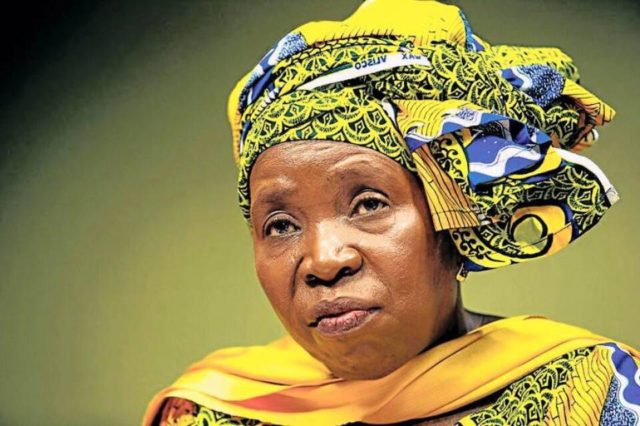“Clear direction from the court is urgently needed to prevent executive overreach”
THE SUPREME Court of Appeal needs to weigh in on the legality of the tobacco ban, in part to map the limits of the power held by Cooperative Governance Minister Nkosazana Dlamini Zuma as this would impact on the lives of South Africans for some time to come, the Fair-trade Independent Tobacco Association (Fita) submitted in court papers on Tuesday.
Fita is seeking leave to appeal the North Gauteng High Court’s dismissal in June of its legal challenge to the ban, which the government argues is necessary as the country grapples with the Covid-19 health crisis.
“The minister is empowered ex legge to exercise significant public power for the foreseeable future. The ambit of such power requires determination by the honourable court and the outcome of this appeal will impact the economy and the lives of many millions of South Africans,” the association pleaded.
“Clear direction from the courts is also urgently needed to prevent executive overreach … The prohibition in question and the extent of ministerial decree is unprecedented in South Africa.”
Fita made the argument in its response to a replying affidavit filed by the minister on Friday, in which she denies overreach.
In her post, Dlamini Zuma is responsible for gazetting regulations pertaining to the state of disaster imposed in response to the Covid-19 pandemic. Hence she is the legal sponsor of the 138-day-old tobacco ban that has contributed to popular anger over the government’s approach to the crisis.
At the heart of the association’s appeal bid is the argument that the Gauteng division of the high court failed to apply the proper test of necessity, as set out in section 27 of the Disaster Management Act, when tabling the ban.
This also forms one of the pillars of the parallel legal challenge by British American Tobacco SA (Batsa), the country’s biggest cigarette maker, heard last week in the Western Cape High Court.
The two organisations argue that in dismissing Fita’s application in June, a full bench of the high court in Pretoria effectively gave Dlamini Zuma a free pass on the administrative law test of necessity. The court held that the minister took a reasonable step to save lives in the face of a dire health threat.
Fita says it erred by effectively collapsing the necessity test into that of rationality, which all laws must pass.
In the affidavit served on Tuesday, Fita chairman Sinenhlanhla Mnguni accused the minister of using the low bar of the rationality test as a stalking horse to get around the uncontested fact that the ban resulted not in smokers quitting en masse but rather turning to the black market in their millions to buy cigarettes.
The association has argued that the minister must prove that the ban was strictly or absolutely necessary to arrive at her aim of forcing the country’s smokers to quit to prevent the strained health services being further burdened by smokers with Covid-19 complications. If smokers have not stopped smoking, the ban has no basis in rationality or necessity, it contends.
Advocate Alfred Cockrell for Batsa argued before the Cape high court that by her own concession, the medical literature the minister relied on did not draw a conclusive link between smoking and the severity of Covid-19 symptoms, and therefore she could not persuade the court that the prohibition was necessary.
Fita, addressing the Supreme Court, termed the surveys Dlamini Zuma cited as “particularly unscientific and crude”.
The minister denies that she needed to clear the necessity threshold, but said she had done so in any event because all measures taken to save lives were necessary and without the ban the country could not weather the Covid-19 crisis.
She also rejects the notion that the ban of a hitherto lawful product raises new questions in fact and in law, stressing without clear reference to a particular legal principle that smoking killed 115 South Africans a day.
Batsa also argued that the ban was unconstitutional because it violated the rights of the industry, its suppliers and clients, without justification for the ensuing economic and social harm. The Cape court has reserved judgment.
The Supreme Court of Appeal is expected to decide within days whether to grant Fita leave to appeal.
The minister has accused the tobacco industry of defending its financial interest rather than legal principle by taking her to court.
– African News Agency (ANA)








